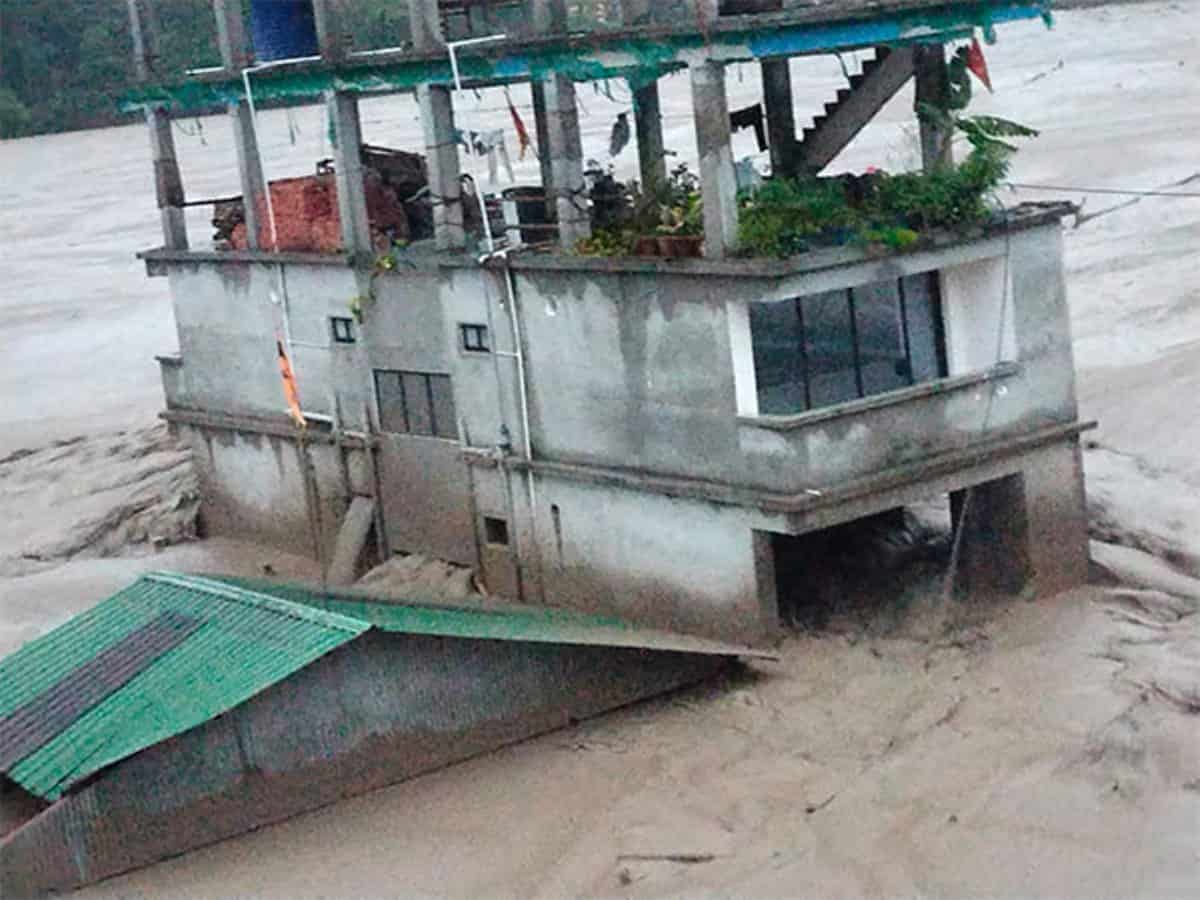
New Jalpaiguri: Mishti Haldar, 28, woke up on Wednesday morning to find that the Teesta was flowing almost within touching distance from her porch at Matigara near Siliguri.
The fast-flowing river, which is normally about 250 metre away from her house, was carrying with it camps, utensils and animal carcasses.
“The river had swollen overnight because of the flash flood in Sikkim and rains, and flooded the low-lying areas of our district. Camps, which must have been struck by tourists or Army people upstream, had been uprooted and the debris were flowing by It was an incredible scene,” said Haldar, a housewife.
Soon, police asked her to move to the nearby school, a designated shelter, as the flood waters were rising.
“Many of us left just with our suitcases, praying our houses will be spared,” she said.
Luckily by Thursday, the water levels went down and Haldar and hundreds of others were able to return home. However, many others remained stuck in the makeshift flood shelters that the state government has set up.
An official of the Water and Irrigation Department said all sluice gates of the Gajoldoba barrage on the Teesta river have to be opened to avoid flooding.
The flash flood in Sikkim created chaos in many other ways, including stranding people in both Sikkim and the plains of northern Bengal.
A group of tourists from Kolkata on a motorcycle-cum-trekking trip was stuck near Singtem without food and no means of getting back as the NH 10, the highway that links Sikkim to the rest of India, had been washed away or had caved in at different areas.
One of them, Rajib Bhattacharya, said “At least we are safe and have managed to find a house, which has spared some noodles for us.”
Ramakant Yadav, 33, a construction worker bound for Sikkim was stuck at the New Jalpaiguri railway station with eight of his mates.
They are among hundreds of tourists, workers and students who are stuck at the railway station.
“We tried to hire a cab and go but we’re turned back midway the travel money is gone now.
“Our contractor, a Sikkimese, is unable to help. His own house has been flooded. We will wait for a few days, eating the ‘sattu’ that we are carrying with us, and if nothing works, we will go back home without the earnings we had hoped for,” said Yadav.
